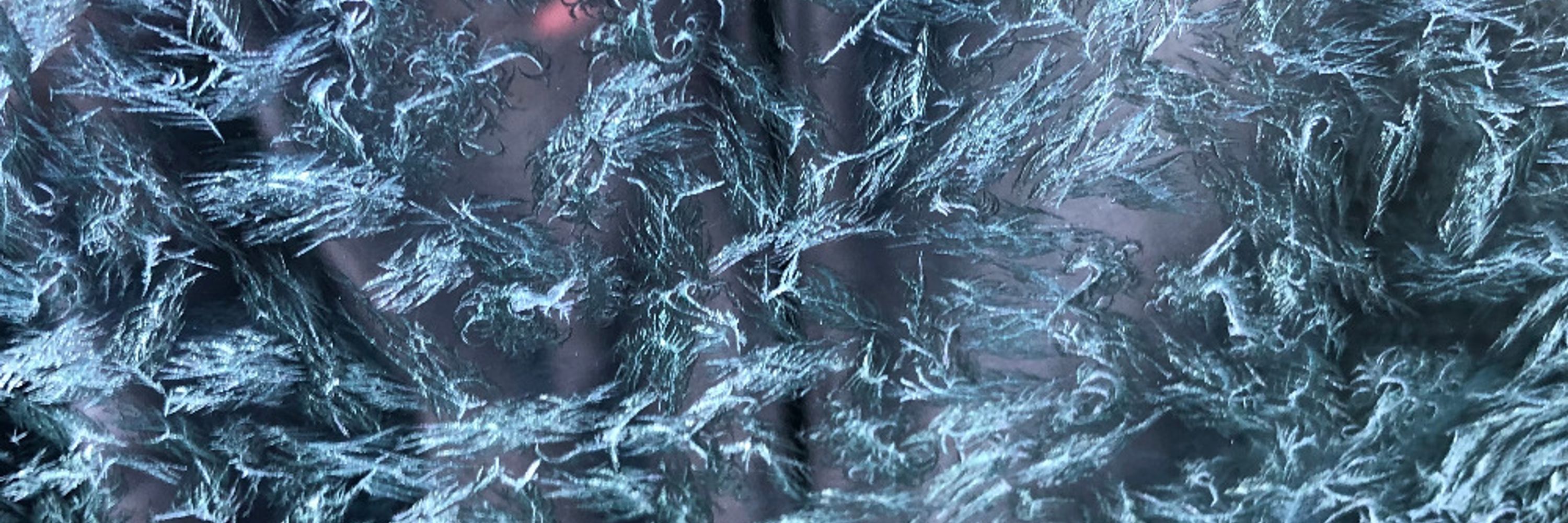
Mark Fischetti
@mfischetti.bsky.social
Senior editor at Scientific American: sustainability, climate, energy, water, environment.... Otherwise, live music! Pickle ball. Curling (yes, that one). Photo: frost on my windshield, almost fractal.
A lot of hype about the crazy big Powerball jackpot. Still, is even that prize "worth" your $2 bet? Here's some math, in a tidy @sciam.bsky.social story: www.scientificamerican.com/article/powe...

Should You Spend $2 to Win $1.3 Billion? Inside Powerball Math
Winning more than $1 billion in Powerball is an exciting possibility, but keeping a cool math mind can help you decide whether that opportunity is worth your $2 bet
www.scientificamerican.com
September 4, 2025 at 2:45 PM
A lot of hype about the crazy big Powerball jackpot. Still, is even that prize "worth" your $2 bet? Here's some math, in a tidy @sciam.bsky.social story: www.scientificamerican.com/article/powe...
Hurricane Katrina hit New Orleans 20 years ago today. @sciam.bsky.social just released a podcast about how I "predicted" the storm and whether the city is safer today. www.scientificamerican.com/podcast/episode/the-science-behind-hurricane-katrina-what-researchers-knew-before-the-2005/

20 Years after Katrina, We’re Still Learning from the Storm That Changed Everything
Two decades after Katrina, we revisit the storm and discuss the evolution of hurricane preparedness since then.
www.scientificamerican.com
August 29, 2025 at 12:11 PM
Hurricane Katrina hit New Orleans 20 years ago today. @sciam.bsky.social just released a podcast about how I "predicted" the storm and whether the city is safer today. www.scientificamerican.com/podcast/episode/the-science-behind-hurricane-katrina-what-researchers-knew-before-the-2005/
Jaime, you did a great job explaining things in a clear and interesting way.
I should mention that the editorial staff at @sciam.bsky.social was wonderful to work with. Their graphics team is impressive and I am grateful for the experience.
Hi friends! Here is a piece I wrote for Scientific American on some marine CO2 removal approaches. TLDR: Let's do great research to know if these strategies might help, but don't assume any of them will (and be especially skeptical that manipulating marine biology can safely remove carbon).
November 20, 2024 at 2:34 AM
Jaime, you did a great job explaining things in a clear and interesting way.
Reposted by Mark Fischetti
Hi friends! Here is a piece I wrote for Scientific American on some marine CO2 removal approaches. TLDR: Let's do great research to know if these strategies might help, but don't assume any of them will (and be especially skeptical that manipulating marine biology can safely remove carbon).
In Scientific American, #URIGSO’s @jaimepalter.bsky.social explores the “promises and perils” of various mCDR methods, emphasizing that these tools will only be effective if we first work to reduce emissions drastically: www.scientificamerican.com/article/coul...

Scientists Reluctantly Experiment with Ocean Engineering to Fight Climate Change
Changing the ocean’s chemical and biological makeup could force it to pull vast amounts of planet-warming carbon from the atmosphere. But is that a line we want to cross?
www.scientificamerican.com
November 19, 2024 at 9:35 PM
Hi friends! Here is a piece I wrote for Scientific American on some marine CO2 removal approaches. TLDR: Let's do great research to know if these strategies might help, but don't assume any of them will (and be especially skeptical that manipulating marine biology can safely remove carbon).
This was fun.
Because every story is a science story: a delightful interview with Professor Pickleball on the physics of pickleball. www.scientificamerican.com/article/pick... 🧪

Professor Pickleball Reveals the Physics of America’s Fastest Growing Sport
‘Professor Pickleball’ reveals the science behind the U.S.’s fastest growing sport
www.scientificamerican.com
October 2, 2024 at 2:36 PM
This was fun.
Reposted by Mark Fischetti
The kicker of the story is: "Buesseler argues that some difficult trade-offs such as this may be necessary. 'It’s a small change in biology, relative to doing nothing and watching this planet boil,' he says.
But is it small?
But is it small?
September 13, 2024 at 6:05 PM
The kicker of the story is: "Buesseler argues that some difficult trade-offs such as this may be necessary. 'It’s a small change in biology, relative to doing nothing and watching this planet boil,' he says.
But is it small?
But is it small?
Reposted by Mark Fischetti
Aside from the headline, I thought this was a well-balanced story on the ocean science community's divided attitude toward the study of iron fertilization as a potential Carbon Dioxide Removal approach
www.scientificamerican.com/article/scie...
I also have something to say about the final quote 🧵
www.scientificamerican.com/article/scie...
I also have something to say about the final quote 🧵

Scientists Will Engineer the Ocean to Absorb More Carbon Dioxide
A research consortium plans to revive geoengineering trials of the controversial iron fertilization technique to pull carbon dioxide from the air, despite public backlash
www.scientificamerican.com
September 13, 2024 at 6:04 PM
Aside from the headline, I thought this was a well-balanced story on the ocean science community's divided attitude toward the study of iron fertilization as a potential Carbon Dioxide Removal approach
www.scientificamerican.com/article/scie...
I also have something to say about the final quote 🧵
www.scientificamerican.com/article/scie...
I also have something to say about the final quote 🧵
Reposted by Mark Fischetti
I just got my updated covid vaccine booster and asked the pharmacist how this vaccine season is going. She said they've been swamped & said, "this is the kind of busy I like!"
September 3, 2024 at 2:47 PM
I just got my updated covid vaccine booster and asked the pharmacist how this vaccine season is going. She said they've been swamped & said, "this is the kind of busy I like!"
Elephants call each other by individual names. Cool. www.tiktok.com/@scientifica...
TikTok - Make Your Day
www.tiktok.com
September 4, 2024 at 12:37 PM
Elephants call each other by individual names. Cool. www.tiktok.com/@scientifica...
AI can control worm brains. Yep. www.scientificamerican.com/article/scie...

Scientists Make ‘Cyborg Worms’ with a Brain Guided by AI
AI and tiny worms team up to get to treats
www.scientificamerican.com
September 3, 2024 at 12:32 PM
AI can control worm brains. Yep. www.scientificamerican.com/article/scie...

